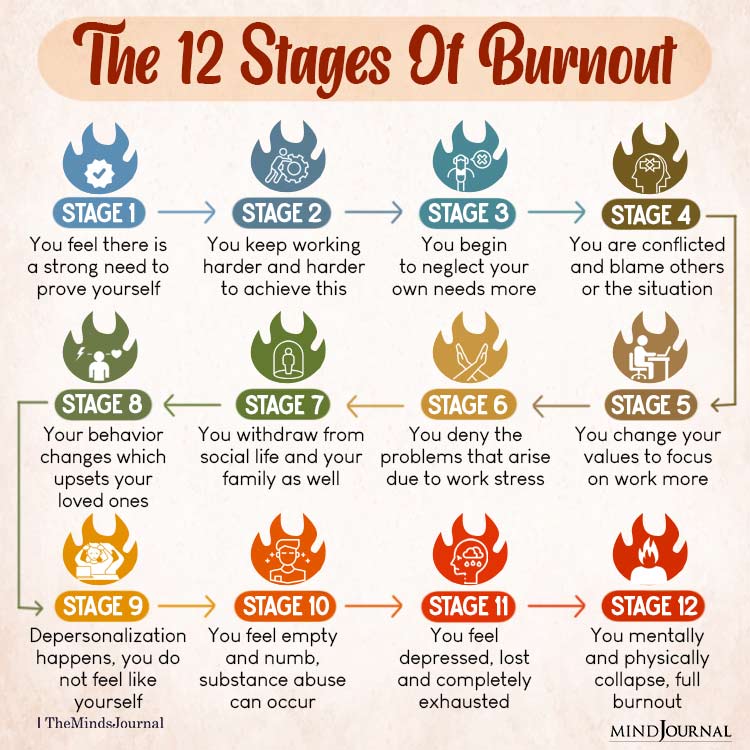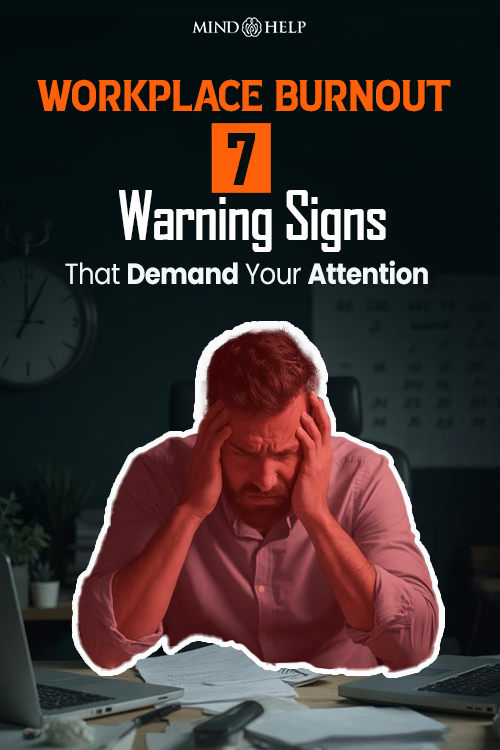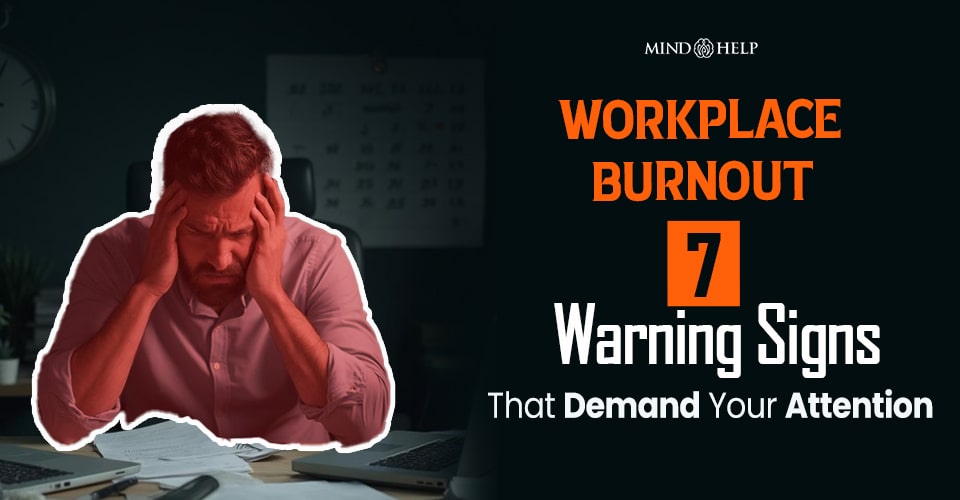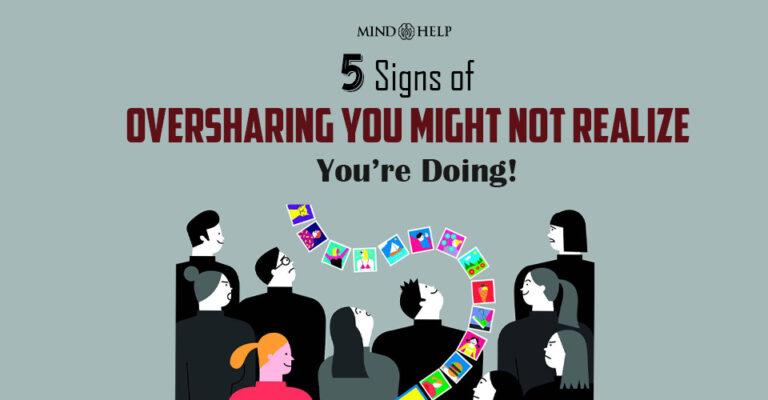Have you ever woken up dreading the thought of opening the laptop? Or found yourself blankly staring at the screen, not knowing what to do with all the piled-up emails? That creeping exhaustion, the loss of motivation, the constant stress, it could be more than a “bad week”. You might be the next victim of workplace burnout.
Workplace burnout isn’t just about being tired or stressed out. It slowly chips away at your happiness and sanity. You feel disconnected, exhausted, and start losing your spark.
If you feel lost in a world that rarely slows down, there is a need to redefine success without burning out. Let’s dig into what employee burnout really looks like, the alarming signs of workplace burnout, and how you can fight back before it takes over.
What is Workplace Burnout?
Frankly speaking, workplace burnout is the hidden cost that affects your mind, body, and career. It’s that deep, draining exhaustion that lingers no matter how much sleep you get or how many coffees you sip.
It silently creeps in as “working hard,” and you are stuck in survival mode at work. And, one fine day, you realize you are no longer a driven but an exhausted professional.
You keep telling yourself, “Just push through today, tomorrow will feel lighter.” But tomorrow comes, and you are stuck in this never-ending loop.
Read: 6 Signs You’re Clearly Being Undervalued At Work
Signs of Workplace Burnout
Here are the 7 signs that reveal you are struggling with workplace burnout:
1. You Wake Up Exhausted, Even After a Full Night’s Sleep
People do wake up staggering in the morning, but it’s another thing to wake up feeling, you just ran a 100 km marathon! That’s not just “being tired.” That’s burnout talking.
Burnout zaps your energy reserves, and no amount of sleep seems to recharge you. You seem to be in a constant “fight or flight” mode.
Burnout doesn’t care whether you slept for 5 or 6, or 10 hours; it’s an energy sucking parasite. If your mornings feel like a battle before your day even begins, take note.
2. You’re Constantly Forgetful or Mentally Foggy
Remember, when you used to be sharp and on top of achievements? And now you are lagging on simple emails and schedules. You walk into meetings wondering, “What do I even say? Why am I even here?”
Employee burnout often shows up as brain fog, making simple tasks (ones that never bothered you previously) feel like climbing mountains. If you are blaming yourself for laziness or not trying hard enough, burnout may be heating up your mental processor.

3. Your Patience Is Hanging by a Thread
You might feel instantly annoyed at your colleague’s or manager’s tone, even though it was perfectly neutral. When burnout hits, your emotional tolerance shrinks, making you snap even at the most random things.
Everything starts feeling personal and triggering. If small situations feel like big battles, that’s burnout in disguise.
4. You’ve Lost the Spark You Once Had for Your Work
Earlier deadlines felt like challenges, not punishments. And now, the drive and the sense of purpose you once had for your profession seem lost.
Workplace burnout tends to drain the meaning out of what you once loved to do. If your passion has faded into indifference or dread, that’s a loud alarm bell.
5. You’re Avoiding Work; Mentally and Physically
Procrastination becomes your new workplace friend! On the outside, you are there, sitting at your desk, nodding in meetings. But inside? Your mind has already checked out.
You keep zoning out, missing out on things. It’s your brain’s way of saying, “I can’t take any more stress right now!” This feeling of disconnect and indifference gradually takes a toll on your mental and physical health.
6. You Feel Isolated, Even Around People
The office get-togethers, back-to-back team calls, or the breaks you had between office hours don’t excite you anymore. That’s the quiet side of burnout that people often do not talk about.
You start to feel numb. Distant. Like nobody really gets it. You start building invisible walls that hamper you emotionally. If your social spark has dimmed, your mind may be asking for help and healing.
7. Your Body Is Speaking Louder Than Your Brain
Do you ever brush off those frequent headaches? Or blame your stiff shoulders on “bad posture”? Maybe you’ve noticed your stomach acting up for no reason, or you keep catching random colds. That’s not a coincidence, it’s your body’s way of communicating, “Enough is enough!”
Constant surges of stress weaken your body’s immune system. If these symptoms sound familiar, this could be the nudge you need to WAKE UP.

Wondering How to Deal with it?
Here’s how you can shift things around for your betterment:
- Talk about it – You don’t need to keep everything bottled up. Whether it’s a friend, a close family member, or even your therapist, talking to them can lighten your mood. Trust me, ranting out helps calm you down.
- Set boundaries – If you are still answering emails at midnight or taking calls on your day off, you’re teaching your brain that rest doesn’t matter. Learn to log out (before your brain logs out) without guilt.
- Take breaks that revive you – Scrolling your phone isn’t a rest. You can try taking walks, having a short nap, or giving time to a hobby you actually enjoy doing. Breaks should refill your tank, not drain it further.
- Reassess your workload – Burnout often silently creeps in your to-do list. Ask yourself,” Am I doing too much than required?” Align your tasks with your strengths and do it confidently. Too much food on the plate hampers the diet.
- Seek professional help – If doing it all alone feels overwhelming, there are therapists and lifestyle coaches to your rescue. They might give you the perspective that helps you take balanced steps.
Read: 10 Good Habits To Start (And Actually Keep For Life)
Final Thought
Burnout isn’t a badge of honor. The hustle culture might brainwash you into thinking workplace burnout to be a sign of dedication. But the truth? It’s a wake-up call for you to align yourself.
If you recognize any of these warning signs, take charge of your life. Life isn’t just about surviving your job; it’s about preserving your health and your joy beyond work.
Remember, you are so much more than your task list.
Frequently Asked Questions (FAQs)
What is workplace burnout?
Workplace burnout is more than just feeling tired; it’s chronic stress that leaves you drained, unmotivated, and disconnected from your work. You might dread Mondays, lose focus, or feel emotionally numb. It builds up over time, often from constant pressure, lack of control, or no work-life balance.
How to prevent burnout in the workplace?
Start by setting boundaries, taking regular breaks, and managing your workload realistically. Prioritize sleep, stay active, and don’t skip time off. Communicate with your manager if you’re overwhelmed. Burnout builds slowly; stay ahead of it by protecting your energy and making well-being part of your routine.
What therapy techniques relieve workplace burnout?
Therapy for workplace burnout often includes cognitive behavioral techniques to challenge negative thoughts, mindfulness to reduce stress, and boundary-setting to protect your energy. Therapists help you identify what’s causing burnout, improve coping skills, and create healthier routines. These strategies can boost resilience, restore motivation, and help you feel more in control, without needing to quit your job.
What is the 42% rule for burnout?
The 42% rule for burnout refers to the finding that people need to spend 42% of their time away from work, including rest, sleep, and non-work activities, to effectively recover and prevent burnout. This means around 10 hours per day should be dedicated to activities that recharge you physically, mentally, and emotionally. It’s based on research into work-life balance and energy restoration.








